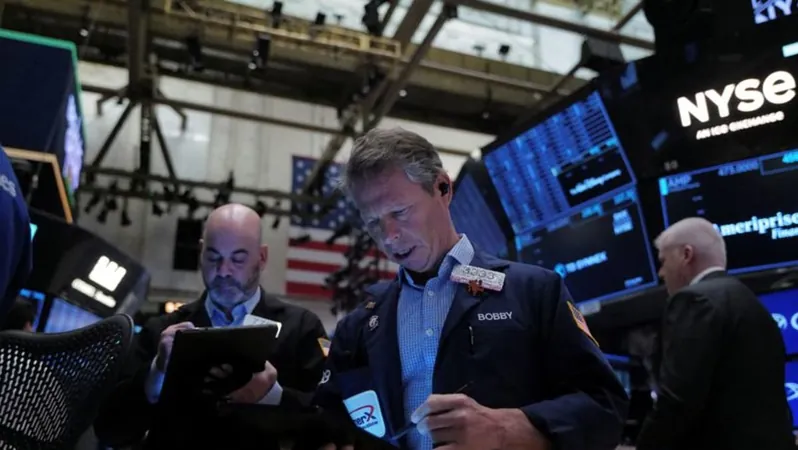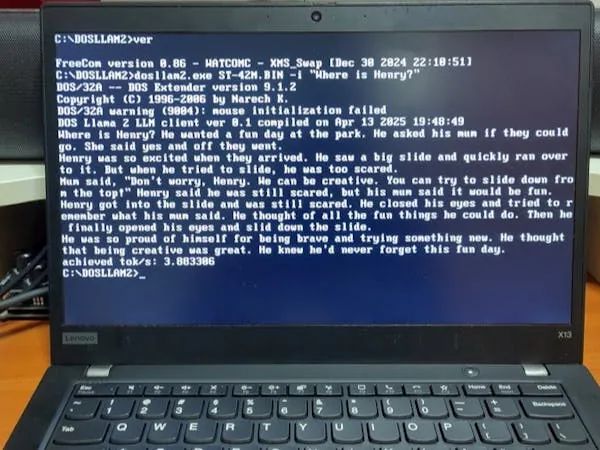
Stocks Dive as Trade War Tensions Soar: What You Need to Know!
2025-04-10
Author: Li
U.S. stocks took a significant hit on Thursday, April 10, as fears of an escalating trade war with China overshadowed temporary relief from President Donald Trump's shocking decision to delay some hefty tariffs.
The S&P 500 plunged 4%, the Nasdaq followed suit with a staggering 4.8% drop, and the Dow Jones Industrial Average fell 2.8%. Investors are frantically assessing the implications of Trump's trade practices, leaving markets in turmoil.
Temporary Relief Doesn't Last
Just a day prior, the announcement that many tariffs would be postponed for 90 days provided a brief lift to financial markets. However, as the reality of potential harsher levies on China set in, that boost dissipated.
The European Union had been poised to introduce retaliatory tariffs on around $23.25 billion worth of U.S. goods in response to Trump's steel and aluminum tariffs. Now, they are reconsidering their approach, hoping negotiations can alleviate the conflict.
Negotiations on the Horizon?
White House economic adviser Kevin Hassett confirmed that about 15 countries are actively engaging in trade discussions, which could yield new agreements aimed at stabilizing the trade landscape.
At a Cabinet meeting, Treasury Secretary Scott Bessent downplayed the market decline, claiming nothing was out of the ordinary. The U.S. and Vietnam even agreed to start formal trade talks. Yet, uncertainty looms as fears of a recession escalate.
China Responds with Firm Stance
As tensions rise, China has dismissed U.S. actions as threats, insisting on respect and dialogue. Following Trump's moves, Beijing imposed retaliatory tariffs of 84% on U.S. imports, stoking fears of further escalations.
The yuan hit its lowest level against the dollar since the global financial crisis, reflecting the market's nervousness.
The Broader Economic Impact
Despite consumer price data indicating a drop in March, the future looks grim if the tariffs remain in effect. Yale researchers reported that the average import duty rate is now at its highest in over a century, intensifying worries about long-term economic ramifications.
Nevertheless, hopes for successful negotiations remain. Trump expressed optimism, stating that a mutually beneficial agreement between the U.S. and China is on the horizon.
Global Markets React
Over in Europe, bond yields surged, and stock markets responded positively to the latest trade developments, showing some resilience amid volatility. Meanwhile, oil prices fell by more than 3% as anxiety over the trade war deepened.
Central bankers across the globe are exercising caution in light of ongoing uncertainties that threaten economic stability, emphasizing the need for trust in this tumultuous market environment.


 Brasil (PT)
Brasil (PT)
 Canada (EN)
Canada (EN)
 Chile (ES)
Chile (ES)
 Česko (CS)
Česko (CS)
 대한민국 (KO)
대한민국 (KO)
 España (ES)
España (ES)
 France (FR)
France (FR)
 Hong Kong (EN)
Hong Kong (EN)
 Italia (IT)
Italia (IT)
 日本 (JA)
日本 (JA)
 Magyarország (HU)
Magyarország (HU)
 Norge (NO)
Norge (NO)
 Polska (PL)
Polska (PL)
 Schweiz (DE)
Schweiz (DE)
 Singapore (EN)
Singapore (EN)
 Sverige (SV)
Sverige (SV)
 Suomi (FI)
Suomi (FI)
 Türkiye (TR)
Türkiye (TR)
 الإمارات العربية المتحدة (AR)
الإمارات العربية المتحدة (AR)